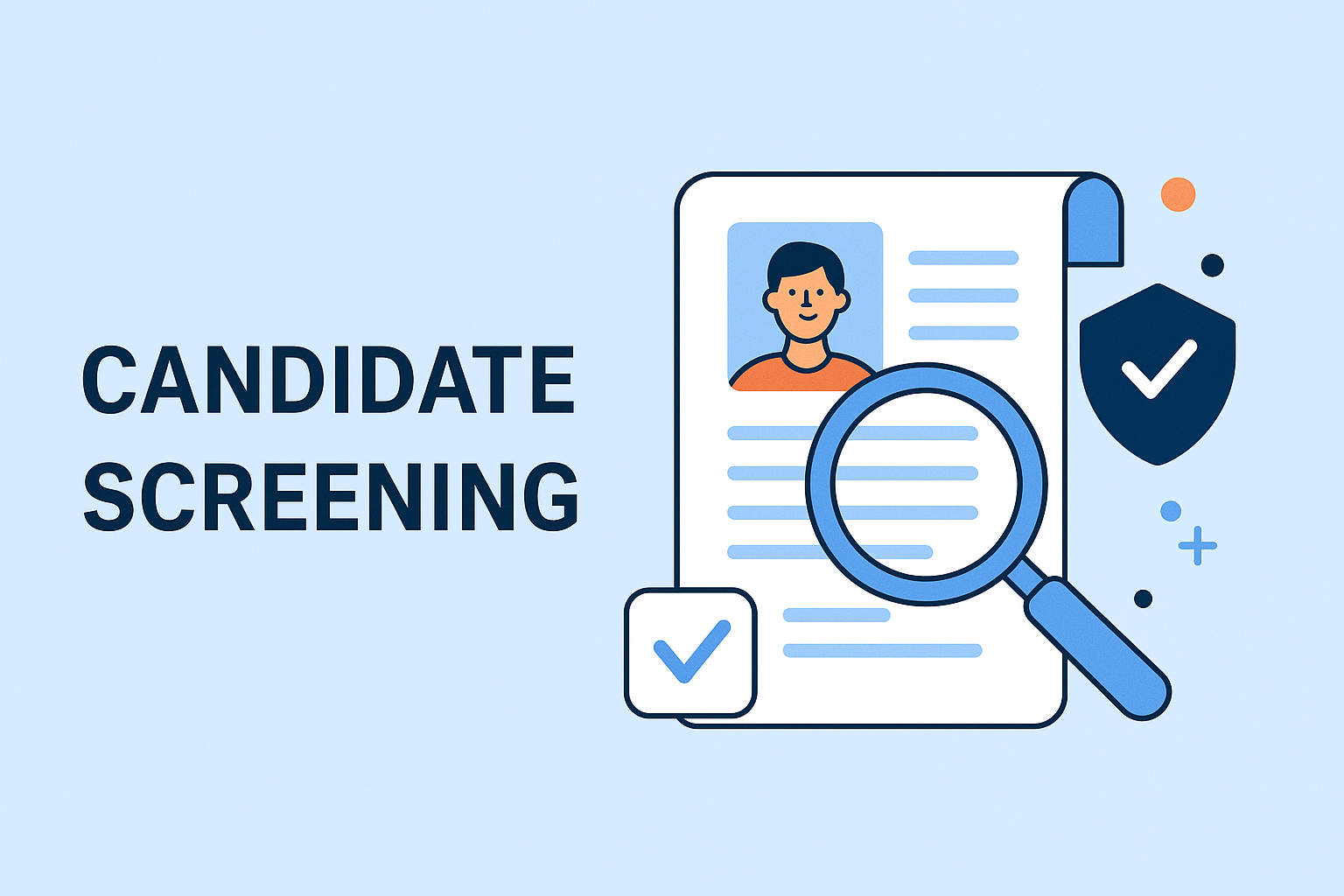What is Candidate Screening? | HR Glossary Explained
What is Candidate Screening?
Candidate Screening is the process of reviewing job applications, resumes, and profiles to determine which candidates meet the basic requirements for a position. Screening helps recruiters quickly narrow down the applicant pool, identify top talent, and move the best candidates forward into interviews or assessments.
Modern screening processes combine manual evaluation, automated parsing via Applicant Tracking Systems (ATS), and increasingly, AI-based tools that assess candidate qualifications, skills, and even cultural fit.
Why is Candidate Screening Important?
Effective candidate screening ensures:
Improved Quality of Hire: Selecting candidates who align with job requirements and organizational culture.
Faster Time-to-Hire: Quickly filtering out unqualified applicants accelerates the hiring process.
Better Candidate Experience: Shorter evaluation periods and timely communication create positive impressions.
Cost Efficiency: Reducing time spent on unsuitable applicants saves recruitment resources.
Bias Reduction: Structured, standardized screening minimizes unconscious bias.

Key Methods Used in Candidate Screening
Resume and CV Review: Manually or automatically reviewing qualifications, experience, and achievements.
Keyword Matching: Aligning resume content with job description keywords for relevance.
Phone or Video Screening: Conducting brief interviews to assess fit and expectations.
Assessment Tests: Skills tests, cognitive ability tests, and job simulations.
Background Checks: Verifying education, employment history, and other credentials.
AI Screening Tools: Using algorithms to evaluate candidate profiles beyond keywords.
Best Practices for Effective Candidate Screening
Define Clear Job Requirements: Clarify must-have vs. nice-to-have qualifications.
Use Structured Screening Criteria: Develop a consistent checklist or rubric.
Automate When Possible: Leverage ATS and AI for initial filtering.
Maintain Human Oversight: Combine automation with recruiter judgment.
Prioritize Candidate Communication: Inform applicants promptly about screening outcomes.
Continuously Improve Screening Processes: Analyze hiring data to refine techniques.
How Candidate Screening Fits into the Larger Recruitment Process
Candidate screening is a critical phase that impacts:
Talent Pipeline Management: Keeping the flow of qualified candidates strong.
Employer Branding: Professional, respectful screening processes enhance brand perception.
Recruitment Marketing ROI: Ensuring marketing efforts yield qualified leads.
Diversity and Inclusion Goals: Structured screening supports fair evaluation.
By optimizing screening, companies can enhance all subsequent stages: interviewing, hiring, and onboarding.
FAQ About Candidate Screening
Q1: How long should candidate screening take?
Initial resume screening ideally takes no more than a few minutes per candidate, especially with ATS support.
Q2: What are common mistakes in candidate screening?
Over-reliance on rigid keyword filters, unconscious bias, and poor communication with candidates.
Q3: Can AI replace human candidate screening?
AI enhances efficiency but should complement, not replace, human decision-making for nuanced evaluation.
Related Terms You Might Find Useful
HR Glossary: Master the Language of Modern HR
Explore More: See how MokaHR streamlines candidate screening with advanced AI resume parsing, smart scoring, and recruiter-friendly dashboards. Request a Demo today!
Final Thoughts
Candidate screening lays the foundation for successful hiring. By combining smart technology with thoughtful evaluation strategies, organizations can ensure they select the right candidates efficiently, fairly, and consistently.
From recruiting candidates to onboarding new team members, MokaHR gives your company everything you need to be great at hiring.
Subscribe for more information

